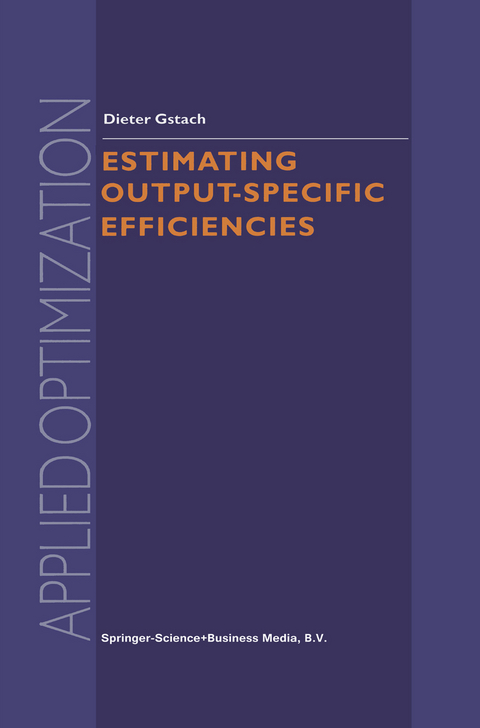
Estimating Output-Specific Efficiencies
Seiten
2002
Springer-Verlag New York Inc.
978-1-4020-0483-4 (ISBN)
Springer-Verlag New York Inc.
978-1-4020-0483-4 (ISBN)
The present book is the offspring of my Habilitation, which is the key to academic tenure in Austria. Legal requirements demand that a Ha bilitation be published and so only seeing it in print marks the real end of this biographical landmark project. From a scientific perspective I may hope to finally reach a broader audience with this book for a criti cal appraisal of the research done. Aside from objectives the book is a reflection of many years of research preceding Habilitation proper in the field of efficiency measurement. Regarding the subject matter the main intention was to fill an important remaining gap in the efficiency analysis literature. Hitherto no technique was available to estimate output-specific efficiencies in a statistically convincing way. This book closes this gap, although some desirable improvements and generalizations of the proposed estimation technique may yet be required, before it will eventually establish as standard tool for efficiency analysis. The likely audience for this book includes professional researchers, who want to enrich their tool set for applied efficiency analysis, as well as students of economics, management science or operations research, in tending to learn more about the potentials of rigorously understood efficiency analysis. But also managers or public officials potentially or dering efficiency studies should benefit from the book by learning about the extended capabilities of efficiency analysis. Just reading the intro duction may change their perception of value for money when it comes to comparative performance measurement.
Preface. Acknowledgments. Part I: Motivating the Concept. 1. Introduction. Part II: Operationalizing the Concept. 2. Technology Estimation. 3. Relation to Radial Measures. 4. Markov Chain Monte Carlo Analysis. 5. Data Generating Process. 6. Identification. 7. Posterior Distributions. Part III: Evaluating the Concept. 8. Estimator Performance. Part IV: Putting the Concept to Work. 9. An Application. 10. Concluding Remarks. References.
| Erscheint lt. Verlag | 31.3.2002 |
|---|---|
| Reihe/Serie | Applied Optimization ; 61 |
| Zusatzinfo | XIV, 204 p. |
| Verlagsort | New York, NY |
| Sprache | englisch |
| Maße | 155 x 235 mm |
| Themenwelt | Wirtschaft ► Allgemeines / Lexika |
| Wirtschaft ► Volkswirtschaftslehre ► Ökonometrie | |
| ISBN-10 | 1-4020-0483-4 / 1402004834 |
| ISBN-13 | 978-1-4020-0483-4 / 9781402004834 |
| Zustand | Neuware |
| Haben Sie eine Frage zum Produkt? |
Mehr entdecken
aus dem Bereich
aus dem Bereich
Buch | Hardcover (2012)
Westermann Schulbuchverlag
34,95 €
Schulbuch Klassen 7/8 (G9)
Buch | Hardcover (2015)
Klett (Verlag)
30,50 €
Buch | Softcover (2004)
Cornelsen Verlag
25,25 €



